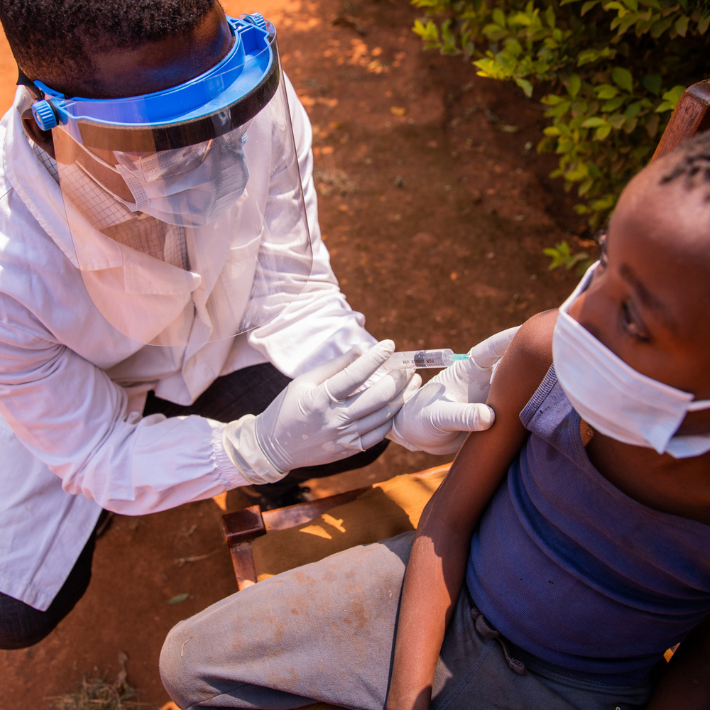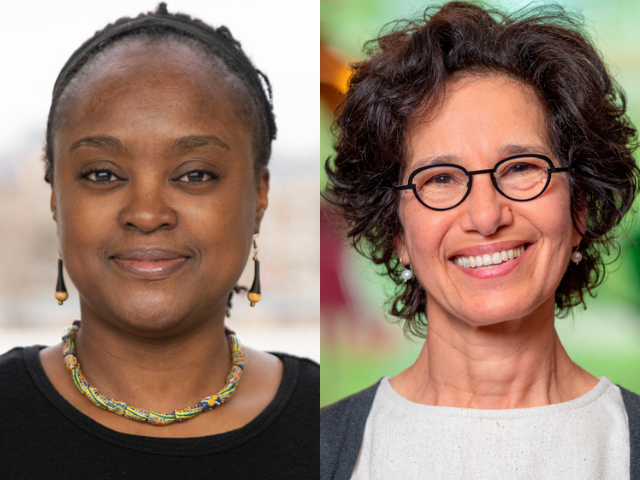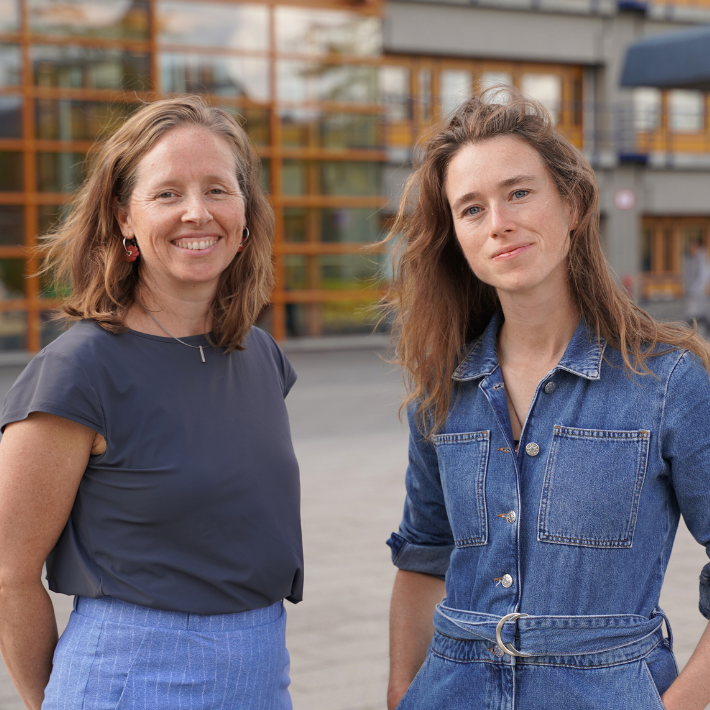Vaccines not equally effective worldwide: differences between high- and low-income countries
&width=710&height=710)
What is the goal of HypoVax Global?
Amoah: “The goal is to find solutions to hyporesponsiveness, a diminished immune response which makes a vaccine less efficacious . To address this, we need to find the mechanisms that cause different biological responses to vaccines. The immune response, the way the body reacts to an unknown substance, is not the same in every person. Differences exist between populations and we want to understand why this is. Why does a vaccine work well in one population group, but less so in another? More specifically, we are looking at the differences between the global north and the global south. But also the variations within countries, such as the differences between people living in urban areas compared to rural areas.”
What vaccines are we talking about?
“We don't focus specifically on one vaccine only but vaccines for which there is evidence of differential immunogenicity and efficacy in different populations. We look at the underlying mechanism of the immune system. So that in the end we have a general picture that is applicable to vaccines against malaria, rotavirus, Ebola virus and tuberculosis, among others.”
You refer to the global north and the global south. What do those terminologies mean?
“By the global south, we basically mean low- and middle-income countries. For example, we collaborate with partners in Indonesia, Senegal, Tanzania, Uganda and Gabon. The high-income countries, Europe and North America, make up the global north then.”
Yazdanbakhsh: “We used to talk about Third World countries, but we no longer use that terminology. The World Bank now refers to low-, middle- and high-income countries, but there's something to be said for that too, because economies can grow and shrink. The global north and south therefore include the countries we mean best I think.”

Abena Amoah and Maria Yazdanbakhsh.
How unique is this global collaboration?
“There have been more initiatives to help improve vaccines, but those are focused mainly on the global north. That was the motivation for me to establish a hub where scientists from the global south are very much involved.”
Why is the latter so important?
“What we think we know about the immune system is mostly based on the immune system of people in the global north. And yet there are such huge differences worldwide. When I lecture students, I always point out this shortcoming in our textbooks. It does not cover the whole reality.”
Why isn't that in the textbooks?
“Because there is a lack of data. Most immunology labs are in the global north. That's why it's so important that we now collaborate with partners from the global south. Then you will realize that there are big differences. Also within countries. For example, I often mention that the immune system of people in Jakarta is more like that of people in Leiden than that of people in rural Indonesia.”
Amoah: “And so there are more strong differences in immune responses observed within countries themselves. In Senegal, for example, responses have been observed to be better in the city than in the rural areas. Those same differences are also seen when you look at the level of wealth. In other words, there are also socioeconomic differences within countries that may play a role that are important to explore. It may also have to do with diet or lifestyle perhaps. All those things we want to find out.”
Does the geographic location where a vaccine is made play a role?
Yazdanbakhsh: “That can be a factor, absolutely. For example, a vaccine may be tailor-made for people in the global north. Suppose you develop a vaccine in Leiden. Then you start testing in that region. That may yield perfect efficacy, and potentially you have a nice vaccine on your hands. But then you want to take it to other places in the world and test it...”
Amoah: “...For example, studies have been conducted with a malaria vaccine in Germany and the United States. Subjects were given a vaccine and then exposed to malaria parasites. The protection in those volunteers was perfect. But then they took the same vaccine to Equitorial Guinea in Central Africa where malaria is actually prevalent. And what did they discover? The protection in those populations was less than 50% percent. Why is that? That's what we want to know. For example, does it have to do with parameters that populations in Central Africa are exposed to? For example , parasitic worms are known to reduce the response to a vaccine.”
Do researchers necessarily have to take their data to the LUMC?
“Not necessarily. For example, there are good research facilities in Uganda, Kenya, Senegal and Gabon. But the strength of HypoVax is mainly that we share data with each other, which allows us to draw comparisons between the global north and south. For instance, using a shared database, a scientist from Indonesia discovered that there are similarities in immune signatures (a kind of fingerprint of the immune system) between rural populations in Indonesia and those in Senegal. Without a collaborative consortium such as HypoVax Global, those pieces of the puzzle might not have been put together. By sharing and collecting data in a combined database, we hope to get a kind of global atlas of immune responses. So that we can start to understand what differences in immune responses exist and what factors could potentially cause hypo responsiveness.”
Where should that ultimately take us?
“For example, we may find adjuvants (substances that enhance the immune response) that we can add to vaccines. Or maybe there is an existing immune modulatory compound that we can start giving people during vaccination that will increase the effectiveness of a vaccine. But it's equally possible that the key is the vaccination schedule. It could be any number of things. We don't necessarily have to make a new vaccine by any means.”
How many lives are potentially to be saved?
“That is very difficult to say. I can't put any figures on that. Besides, it will have different impact for different diseases. But it is evident that the impact will be huge if we can improve vaccines or immune responses to them.
Supporting female researchers
Hypovax Global seeks equal partnerships between researchers from different areas in the world. The hub points out that the gender ratio in the scientific research area is still out of balance. The network aims to address this by providing additional support to women researchers, including by offering them mentorship opportunities. In addition, HypoVax promotes diversity in terms of people, gender and the division between the global north and south in research.
HypoVax Global has just received Euro 10,000 from KNAW Van Walree Fund. This money will be used to set up an online mentorship programme for women. The project is entitled “Empowering Women in Vaccine Research: Co-creating an International Mentorship Programme”.
&width=710&height=710)
&width=710&height=710)
&width=710&height=710)
&width=710&height=710)